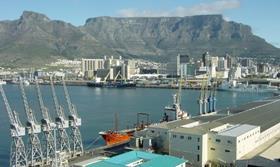
While politicians on both sides of the English Channel get hot under the collar about the Brexit process and what to do or not do, in South Africa one finds far more pragmatic views.
Topfruit growers generally feel that the dust will settle and trade will continue, providing the right products are offered and good relations are sustained.
South Africa went through a major crisis involving Britain and Europe once before. In 1974, when Britain joined the EU, South Africa lost its preferential trade agreements. Some industries were hit harder than others, with table grape growers having to pay up to 18 per cent in tariffs.
Of far more significance is that the laws of Europe, in terms of plant health issues, are dominated by Brussels. At times, prior to WTO days, strict quotas were applied because they were demanded by French and other European producers.
In 2019 the situation is completely different and despite the prospect of some administrative issues, South Africans expect trade to continue very much as normal as far as they are concerned. They expect to supply their customers in both the UK and Europe more or less in the same way as in the past.
“South African producers have a great capacity for adapting to different conditions,” says Hein Keulder, chief executive of Fruitways. “Sometimes it is better not to get too involved and what you do not know you do not know. The dust will settle soon.”
Keulder says the UK has always been an important trading partner for South African producers. “For us it is a sophisticated market where we have been trading right from the beginning of exports. Our aim is to deliver the products the UK’s discerning customer requires and the experience we gather there will benefit us elsewhere.”
With the South African industry now in its peak harvesting week of the 2019 season, local growers have to focus on the logistics of handling the crop. In that respect it is not an easy season, with electricity supply problems making things difficult. The central electricity supply agency, ESKOM, has been struggling to meet demand for various reasons. On top of this Cyclone Idai directly hit Mozambique and Zimbabwe, as well as the electricity supply lines for the Cahora Bassa dam in Mozambique. Cahora Bassa delivers a substantial amount of electricity into the South African grid.
For apple growers it is tough to schedule the cooling of the fruit immediately after picking. Most of the packing and cold storage plants are just too big to have their own emergency electrical generating systems. “This is one of the challenges we face,” says a philosophical Keulder. “At least we have good information on when these power interruptions will occur and we can plan for it.”
With South African growers always remaining optimistic, Keulder emphasised that South Africa has a much better crop this year. “We were not affected so badly by last year’s drought and in terms of apples we expect to harvest around 10 per cent more this year. Pears will be down on last year.”



